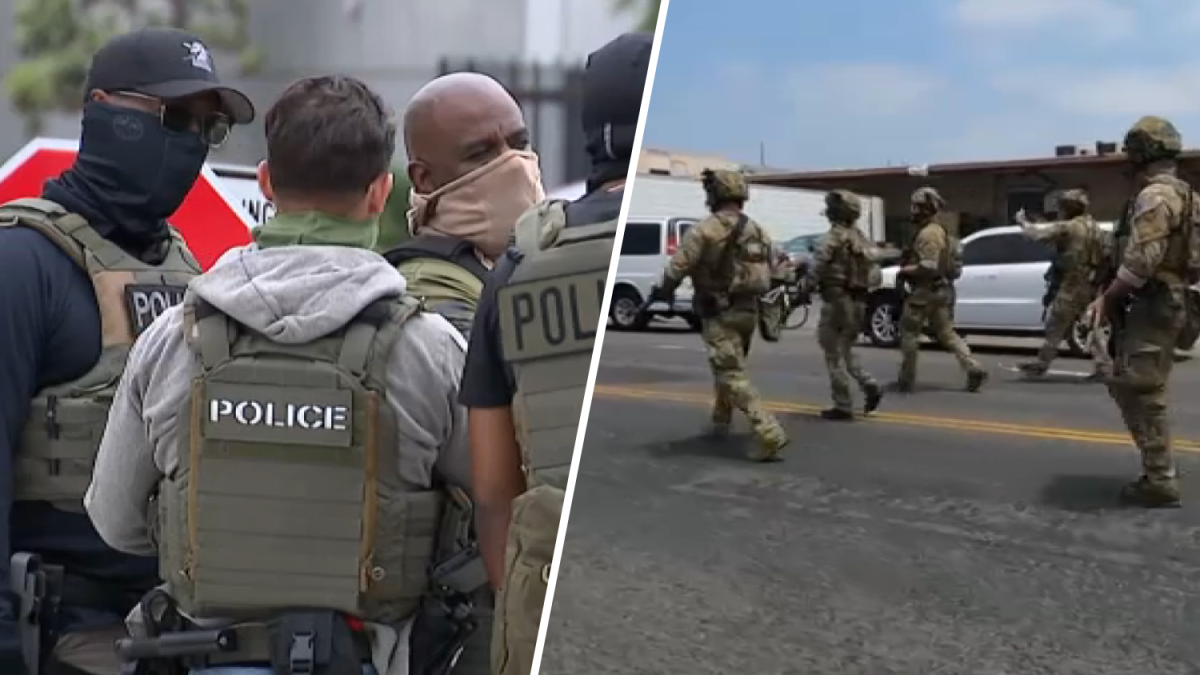Could the New ICE Supreme Court Ruling Fuel Racial Profiling?

Published: 2025-09-11 01:41:44 | Category: policy GNEWS Search
This article explores the recent Supreme Court ruling that permits Immigration and Customs Enforcement (ICE) to conduct roving patrols in areas frequented by immigrants, raising concerns about racial profiling and civil rights violations. Critics argue that this decision could lead to unjust discrimination based on appearance or language, reinforcing fears among immigrant communities.
Last updated: 29 October 2023 (BST)
Overview of the Supreme Court Ruling
On 23 October 2023, the Supreme Court delivered a ruling allowing ICE to continue its controversial roving patrols in immigrant-populated areas, particularly in Los Angeles. This decision has significant implications, potentially reshaping how immigration enforcement operates across the United States. Critics of the ruling argue that it undermines existing protections against racial profiling, enabling federal agents to detain individuals based solely on their appearance.
Key Takeaways
- The Supreme Court's decision permits ICE to conduct roving patrols based on perceived race.
- Advocates warn this could lead to increased racial profiling and civil rights violations.
- The ruling may influence ICE operations beyond California, affecting immigrant communities nationwide.
- Legal experts argue it shifts the definition of suspicion away from the principle of individualised assessment.
- Community voices express fear and concern for their safety and that of their families.
Implications for Immigrant Communities
The impact of this ruling is felt deeply in immigrant communities, particularly among those who may already feel vulnerable. Ana Kiefer, a Brazilian immigrant living in Boston, voiced her concerns about recent raids in her neighbourhood, reflecting a sentiment shared by many. “It’s really, really hard to see all the good people go,” she stated, highlighting the emotional toll that such actions take on families and communities.
Racial Profiling Concerns
Critics, including civil rights advocates, argue that the ruling normalises racial profiling, allowing agents to stop individuals based on how they look or sound, rather than on reasonable suspicion of unlawful activity. According to Northeastern law professor Jeremy Paul, this represents a transformation in how suspicion is defined under the law. He argues that the Constitution has previously mandated individualised suspicion, which is now at risk of being eroded.
Legal Context and Historical Precedents
The lawsuit that prompted this Supreme Court decision was filed by the American Civil Liberties Union (ACLU), following ICE raids at locations like home improvement stores and car washes where Latino communities frequently gather. Adriana Lafaille, managing attorney for the ACLU of Massachusetts, emphasised that the ruling does not change the law itself but rather highlights a concerning trend where agents may push the limits of what is permissible.
Responses to the Ruling
U.S. Attorney General Pam Bondi expressed support for the ruling, asserting that it allows ICE to operate without excessive judicial oversight. In contrast, the Department of Homeland Security (DHS) has denied that the agency engages in racial profiling, claiming that enforcement actions are based solely on immigration status.
Potential for Broader Impact
While the ruling technically applies only to California, experts believe its ramifications could extend to other states, including Massachusetts. Paul warns that individuals residing unlawfully in Boston may justifiably fear ICE actions, leading to a heightened atmosphere of anxiety within immigrant communities. This fear could deter individuals from seeking essential services or engaging with law enforcement when needed.
The Role of Civil Rights Advocacy
Advocates continue to stress the importance of fighting for civil rights, asserting that the ruling should not be viewed as a final word on immigration enforcement. Lafaille pointed out that the ACLU and other organisations will persist in their efforts to protect the rights of individuals, ensuring that law enforcement remains accountable and that existing laws against profiling are upheld.
Community Reactions
The reactions from immigrant communities are varied, with many expressing fear and frustration. Some worry about the implications for their families, particularly children who may be targeted based on their appearance. Kiefer’s concerns for her son, who she feels could be wrongfully profiled, underscore the personal stakes involved in these policy changes.
What Happens Next?
The future of immigration enforcement in the United States appears uncertain following this ruling. Advocates are preparing to challenge any potential abuses of power by ICE, and the ongoing conversation around racial profiling and civil rights will likely continue to evolve. As communities grapple with the implications, there is a pressing need for awareness and advocacy to ensure that the rights of all individuals are respected.
Conclusion
This Supreme Court ruling marks a significant moment in the ongoing debate about immigration enforcement and civil rights in the United States. With concerns about racial profiling and its potential consequences, it is crucial for communities to remain vigilant and engaged. The balance between security and individual rights remains a contentious issue, and how it is navigated in the coming months and years will shape the landscape of immigration policy.
FAQs
What is the Supreme Court ruling about ICE patrols?
The recent Supreme Court ruling allows ICE to conduct roving patrols based on perceived race or ethnicity, potentially enabling racial profiling in immigration enforcement.
How does this ruling affect immigrant communities?
This ruling raises concerns about increased fear and anxiety among immigrant communities, as individuals may be stopped or questioned based on their appearance rather than evidence of unlawful activity.
What are the legal implications of this decision?
The ruling shifts the legal definition of suspicion, moving away from individualised assessments and potentially normalising racial profiling in immigration enforcement.
What can be done to challenge this ruling?
Civil rights organisations like the ACLU are preparing to challenge any abuses of power by ICE and advocate for the protection of individual rights against profiling.
Why are civil rights advocates concerned?
Advocates are concerned that the ruling legitimises racial profiling, which could lead to violations of rights for U.S. citizens and lawful residents based on their appearance or language.



